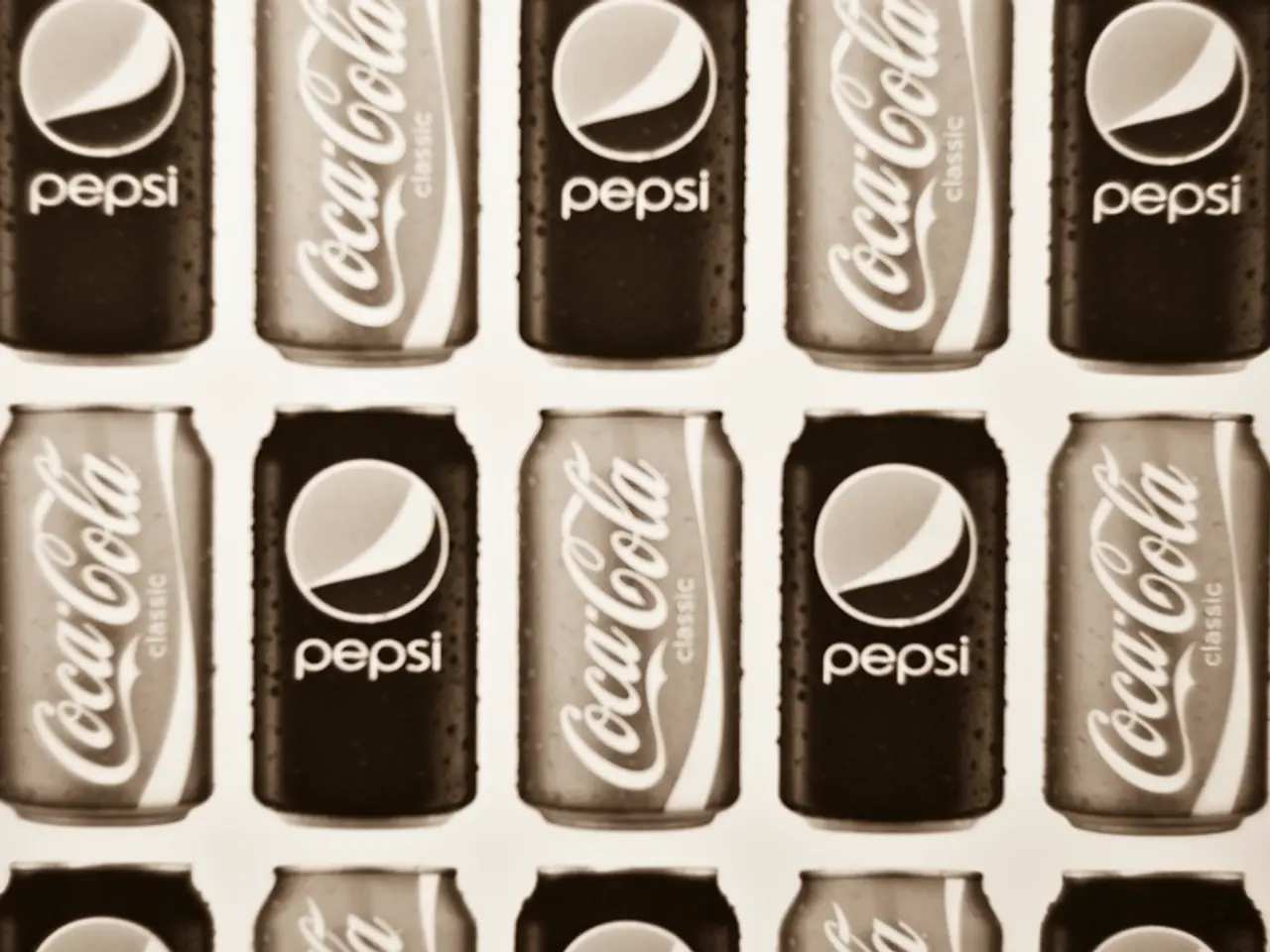Revealing the Process: The Journey of Pepsi's Production into Its Recognizable Can
In the bustling world of beverage production, PepsiCo stands out for its commitment to quality and consistency. Let's take a closer look at how a can of Pepsi is made, from the initial syrup creation to the final product on store shelves.
The Syrup Composition
The Pepsi syrup, the concentrated, sweetened, flavored base of the drink, is a carefully crafted blend of high fructose corn syrup, caramel color, phosphoric acid, caffeine, citric acid, natural flavors, and carbonated water, added later during bottling. Each ingredient plays a crucial role in creating Pepsi's distinctive taste.
Manufacturing Process
The syrup is maintained at specific temperatures to preserve its flavor and prevent foaming during bottling. It is then dispensed with exacting precision into bottles, where carbonation occurs to create the fizz. This process takes place in highly automated, sterile environments to ensure quality and consistency.
The Canning Process
The forming process of a Pepsi can involves several steps: a cupping press, drawing and ironing (D&I), trimming, necking, coating, printing, and flanging. The double-seaming process is used to attach the lid to the can body, creating a hermetic seal that prevents leakage and maintains carbonation.
Rigorous quality control measures are in place throughout the entire canning process. Regular inspections verify the integrity of the seams and fill levels, and samples are taken and tested for taste, carbonation level, fill level, seam integrity, and microbial contamination.
Modern Canning Line
The canning line is a complex and highly automated system that fills, seals, and packages thousands of cans per minute. Modern filling machines, equipped with sophisticated sensors and controls, fill cans with accuracy and minimal waste. Volumetric or gravimetric filling systems ensure accurate fill levels.
Sustainable Packaging Solutions
PepsiCo is dedicated to reducing its environmental impact. This commitment is reflected in the use of recycled aluminum and lighter-weight cans. Dry offset lithography is used to print the Pepsi logo and design on the can, and advanced water treatment systems ensure the highest purity of water used in Pepsi production.
In conclusion, the production of a can of Pepsi is a meticulously controlled process, from the creation of the syrup to the final seal on the can. The exact flavor formula remains a closely guarded secret, but the commitment to quality, consistency, and sustainability is evident at every step.
- In the realm of modern industry, finance plays a crucial role in the manufacturing sector, especially in the production of food and drink items like Pepsi, as it enables companies to invest in advanced technology, such as sophisticated filling machines and water treatment systems, for enhanced quality and sustainable packaging solutions.
- The cooking methodology employed in the food-and-drink industry is not limited to the kitchen; it also extends to the production line, given the exacting precision required in syrup creation, to preserve the distinctive taste of the beverage.
- As the demand for Pepsi continues to grow, technology has become an integral part of the industry, facilitating automation of manufacturing processes, from the synthesis of the sweet syrup to the final sealing of the can, ensuring consistency in quality and adherence to the rigorous standards of the lifestyle-oriented food-and-drink industry.




